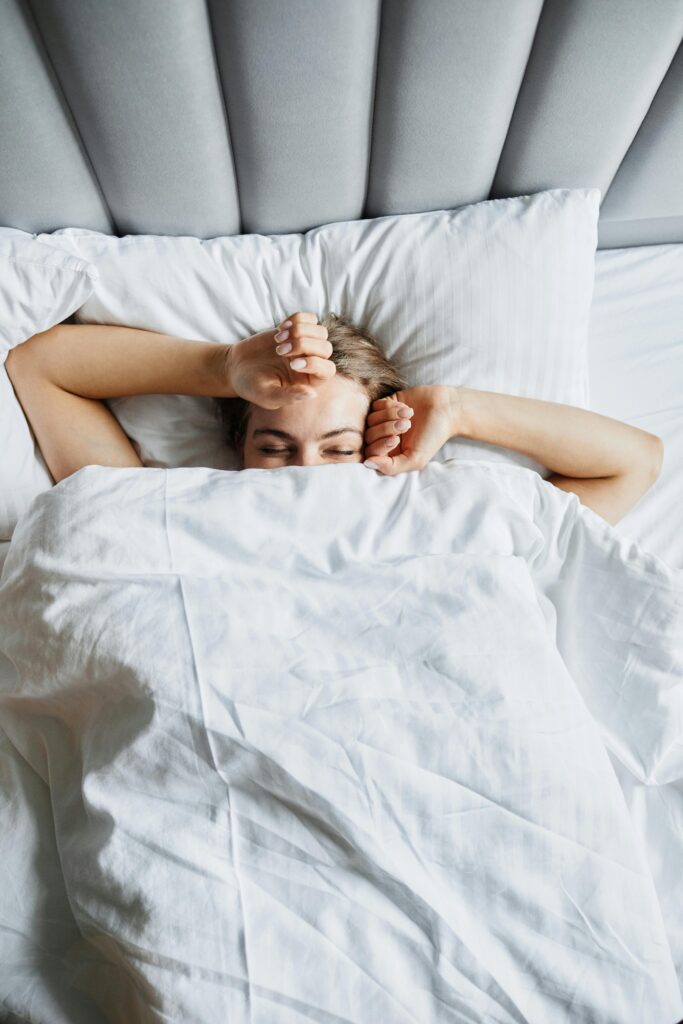The Relationship Between ADHD, Sleep & Mental Health
Sleep and ADHD have a complex relationship, and understanding it is a key part of supporting emotional regulation, focus, and overall physical, emotional, psychological wellbeing and functioning.
A 2024 study by Mirte van der Ham and Colleagues published in the Journal of Attention Disorders, explored sleep problems in 3,691 adults diagnosed with ADHD. The findings suggested that 60% of adults with ADHD screened positive for a sleep disorder; with the highest prevalence being: 36% experiencing symptoms of delayed sleep phase, 30% Insomnia, 29% restless leg syndrome.
Given that poor sleep can impacts mood, memory, mental health, physical pain and recovery. Whether you’re navigating ADHD yourself or supporting a loved one, it can be helpful to understand how ADHD and sleep are connected, and what strategies can support more restful nights.
How ADHD Impacts Sleep
People with ADHD are up to 3 times more likely to experience sleep difficulties compared to the general population. As noticed in the study mentioned above, some of these symptoms include:
– Delayed Sleep Phase (a circadian rhythm disorder): Where the body’s natural rhythm is pushed back, making it hard to fall asleep before midnight or later. Struggling to wake up at a socially conventional time (e.g. for school or work). This can often create a mismatch between biological rhythms and daily obligations, leading to chronic sleep deprivation, daytime inattention and mood dysregulation.
– Racing Thoughts or Hyperfocus contributing to Insomnia: Even at bedtime, the ADHD brain can stay on, cycling through thoughts or becoming hyperfocused on a task or screen.
– Restless Leg Syndrome: A neurological condition marked by an uncontrollable urge to move the legs, especially at night, which can delay or disrupt sleep.
– Sensory Sensitivities: Noise, temperature, or light can feel more disruptive to someone with ADHD.
All of this (in both children and adults) can lead to shorter sleep duration, more night wakings, and daytime fatigue, which can in turn worsen ADHD symptoms like irritability, poor focus, and emotional reactivity.
Why is ADHD so Closely Tied to Sleep Problems?
ADHD impacts the brain’s regulation of attention, motivation, and arousal, all of which are connected to sleep.
– Dysregulation of dopamine and other neurotransmitters that influence sleep-wake cycles.
– Delayed Melatonin onset: research suggests that those with ADHD (especially adolescents and adults) experience a delay in natural secretion of melatonin (the hormone that helps signal the brain it’s time to sleep). In neurotypical individuals, melatonin levels typically begin rising around 8-9 pm. In people with ADHD, this rise often occurs 1.5 to 2 hours later (around 10-11 pm or later) which can contribute to delayed sleep (Van Veen et al., 2010).
– Executive function challenges can impact one’s ability to shift from activity mode to rest and often requires extra support.
– Co-occurring Conditions: Anxiety, depression, trauma/PTSD or substance use (which have also been found to be more prevalent in those with ADHD) can further negatively impact sleep.
The Vicious Cycle between ADHD & Sleep
Lack of sleep or poor-quality sleep can also worsen ADHD symptoms. In fact, sleep deprivation can mimic or amplify symptoms of inattention, impulsivity, and emotional dysregulation. This creates a cycle in which:
ADHD makes sleep harder → Poor sleep makes ADHD symptoms worse → More struggles the next day.
Breaking this cycle often requires an integrative approach that looks at nervous system regulation, daily routines, and individual sensory and cognitive needs.
Strategies That Can Help
Some strategies that could help regulate sleep include:
-
- Keep a consistent sleep-wake schedule , even on weekends. The ADHD brain thrives on rhythm, even when it resists it.
-
- Light Therapy in the morning has also shown to be helpful in resetting the internal clock.
-
- Dim lights and reduce stimulation 1–2 hours before bed. This might include calming music, visual timers, or sensory-friendly bedtime routines.
-
- Use tech tools wisely. Apps like white noise, bedtime reminders, or blue light filters can support transitions when used intentionally.
-
- Regulate the nervous system. Breathing techniques, body-based grounding, and EMDR resourcing can support relaxation in ADHD clients who feel stuck in ‘on’ mode.
-
- Watch for food sensitivities or blood sugar dips, especially in the evening, as these can trigger irritability or overstimulation.
At Unitive Mental Health and Wellness Clinic, we take a holistic, trauma informed and neurodivergent affirming lens and approach to working with all our clients. We tailor the practice and modality to what would be the best fit for you, your lifestyle and needs. Some of these modalities offered at Unitive Clinic in targeting sleep issues include:
CBT for Insomnia (CBT-I), Mindfulness-based therapy, Somatic Therapy, ADHD coaching, Nutrition coaching, IFS and EMDR, and Case management via collaboration with medical providers. If you are navigating ADHD and sleep struggles, you are not alone, we can work together to co-create a plan that honours your unique brain and nervous system, as means to optimal health, wellbeing and functioning.
Reach out today to book a free consultation. Services offered in person in Vancouver, BC or Online.

